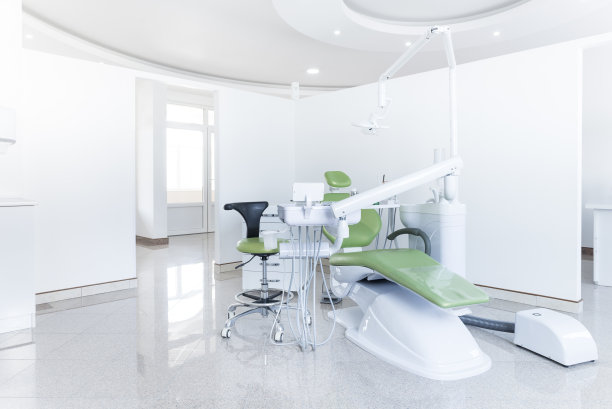Summary: Dental fillings are a common procedure used to restore teeth affected by decay or damage. Ensuring optimal oral health before and after receiving a dental filling is crucial for both immediate recovery and long-term dental wellness. This article outlines essential guidelines in four key areas: preparation before the filling procedure, post-filling care, dietary considerations, and the importance of follow-up dental visits. By adhering to these recommendations, patients can significantly reduce the risk of further complications and promote better overall oral health.
1. Preparing for Your Dental Filling Procedure

Preparation is essential when it comes to getting a dental filling. First and foremost, communication with your dentist is vital. Discuss any concerns or anxieties about the procedure, as this can help your dentist tailor their approach to ensure you feel comfortable. Additionally, inform your dentist about any medications you are currently taking or any medical conditions you have, as these factors can influence the treatment options available to you.
It is also advisable to arrange transportation for your appointment, especially if you are receiving sedation during the filling process. Depending on the type of anesthesia used, you may feel drowsy post-procedure, making it unsafe to drive yourself home. Having a reliable means of transportation will eliminate this concern, allowing you to focus solely on your recovery.
Lastly, consider dietary choices before the appointment. Eating a light meal beforehand can help prevent nausea during the procedure, especially if sedation is used. Avoiding heavy or hard-to-digest foods can contribute to a smoother experience, ensuring you feel your best while in the dentists chair.
2. Post-Filling Care Instructions
Once your dental filling is complete, following post-care instructions is essential for optimal results. Initially, be mindful of the numbness that may result from local anesthesia. Avoid eating or drinking until you have regained full sensation in your mouth to prevent biting your cheek or tongue inadvertently.
In the first few days after the filling, it is crucial to monitor for any signs of discomfort. Some sensitivity to hot or cold is normal as the tooth adjusts to the filling. However, if you experience ongoing pain or increasing sensitivity, contact your dentist promptly to address any potential complications.
Maintaining proper oral hygiene is also essential after receiving a dental filling. Brush your teeth gently but thoroughly, taking care to clean around the filled area. Additionally, consider using a non-alcoholic mouthwash to minimize irritation, which can also aid in healing. Regular flossing remains important, but be cautious around the filled tooth to prevent accidental pulling or dislodging of the filling material.
3. Dietary Considerations Following Fillings
Diet plays an important role in your recovery after a dental filling. For the first 24 hours, it is best to stick to soft foods and avoid anything particularly chewy or hard that may disturb the filling. Foods like yogurt, mashed potatoes, and smoothies are excellent options for this period. This approach not only helps with comfort but also supports the healing process.
As the days progress, you can gradually reintroduce your regular diet. However, it is wise to avoid sticky candies or hard foods in the weeks following the procedure. These items may cause damage to the filling or even dislodge it, leading to further dental issues that could necessitate additional treatments.
Hydration is another crucial aspect. Drinking plenty of water helps to flush out any food particles and maintain overall oral health. Avoid sugary beverages and acidic drinks for a few days, as these can irritate the sensitive area around the filling and potentially lead to decay.
4. Importance of Follow-Up Dental Visits
Follow-up appointments are vital after receiving a dental filling. These visits allow your dentist to monitor the fillings condition and ensure that it has settled correctly within the tooth. Typically, a follow-up is scheduled within a few weeks of the procedure, providing an opportunity to address any concerns or discomfort that may have arisen.
Regular check-ups are particularly important as they help to keep track of your dental health over time. Your dentist will be able to assess the filling and surrounding teeth for any development of decay or wear. The earlier issues are identified, the more manageable they will be.
In addition, these visits are a great opportunity to reinforce proper dental hygiene practices. Your dentist can provide personalized tips and advice tailored to your needs, contributing to an overall healthier mouth. Preemptive care significantly reduces the odds of needing further dental work in the future, enhancing your oral health in the long run.
Summary:
In conclusion, following essential guidelines before and after getting a dental filling is crucial for maintaining optimal oral health. Understanding the importance of preparation, adherence to post-care instructions, dietary considerations, and maintaining regular follow-up appointments can significantly contribute to long-term dental wellness. Prioritizing these practices not only ensures a smoother recovery but also helps prevent future dental issues.
This article is compiled by Vickong Dental and the content is for reference only.
Vickong Dental
Vickong Dental is a large medical group established in Hong Kong in 2008 by professors from well-known medical universities in Guangdong and Hong Kong, as well as medical doctors from key national '985' universities (including Master's supervisors and senior professors). The chain of branches brings together expert dentists with PhDs and Master's degrees from Hong Kong and Mainland China, committed to providing high-quality dental treatment.
"Vickong Dental Practices the University Motto of 'Healing and Serving Society,' with a Stable Operation for Sixteen Years. It Has Been honored with Hong Kong Enterprise Leaders's Choice,' and is a Global Trusted Implant Center for the Nobel Implant System. Recommended by Hong Kong Metro Broadcast and Guangdong Television, it Serves Customers from Over Thirty Countries and Regions, Gaining the Trust and Favor of Citizens from the Guangdong-Hong Kong-Macau Greater Bay Area and Surrounding Cities.

Thousands of customers' unanimous praise
The most recognized and highly recommended dental service by customers in the Guangdong-Hong Kong-Macau Greater Bay Area
We Ensure You Receive Detailed Care and Attention Here
Hong Kong standards, Shenzhen prices, Your Trusted English-speaking dentists

Vickong Dental Medical-Grade Instrument Disinfection Process
Vickong Dental Medical-Grade Instrument Disinfection Process

Vickong Dental Chain: A Warm and Comfortable Environment for Treatment






Appointment Hours

Q&A
Why choose Vickong Dental?
Vickong Dental practices the university motto 「Medicine to Benefit Society」, with each branch bringing together highly qualified dentists with doctoral and master’s degrees from Hong Kong and the Mainland, and has maintained seventeen years of steady operation。Recipient of 「2024 Hong Kong Enterprise Leaders Brand」, 「2025 Hong Kong Enterprise Leaders Brand」, a Nobel Biocare Global Trusted Implant Center, and a brand recommended by Metro Radio Hong Kong and Guangdong TV。
To date, we have served customers from more than thirty countries and regions,earning exceptionally high word-of-mouth recognition and trusted recommendations from residents across the Guangdong-Hong Kong-Macao Greater Bay Area and surrounding cities
We have eight major branches in Zhuhai、Shenzhen,and a consultation and service assurance center in Hong Kong,so you can book a free consultation at any time for any questions,which is very reassuring.
If I do not accept the quotation after the CT scan, will I be charged??
No! As long as the actual treatment has not started, you will not be charged any fees.
Will there be any additional charges during the treatment process?
No, there won’t be any additional charges. Before treatment begins, we will clearly explain the treatment plan and its corresponding fees. Only after the patient agrees and signs the consent form will we proceed with the dental service.
Can I pay in Hong Kong dollars?
Yes. Vickong Dental accepts payment in Hong Kong dollars. The amount will be converted based on the exchange rate of the day, and the applicable rate will be clearly communicated to you in advance.
Can I reschedule my appointment at any time?
Yes. Please contact us via **WeChat** or **WhatsApp** as early as possible, providing your original appointment time and details, along with your preferred new date and time slot for rescheduling.













